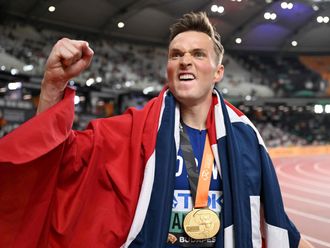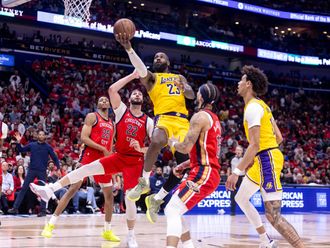As it’s time to look back at what has been an amazing year in the world of sport, fleeting images move past you like a newsreel.
Usain Bolt, Michael Phelps, Leo Messi, the Spanish football team or Sachin Tendulkar…it’s been one hell of a collection of amazing people and their deeds.
If there were two sporting giants who made London Olympics their own, they were Bolt and Phelps.
Meanwhile, no individual performer strode the world of football like Messi, who broke all goalscoring records in sight.
As they jostle for the biggest and best awards for the year, I would like to remember the year also as the one when sport’s biggest bluff was called.
While sport is usually heralded as a celebration of life, I have also formed my own take on the business of sports journalism after all these years — we are ordinary folks making a living out of achievements of extraordinary people.
Yes, even these achievers often err in judgement — be it on the field of action or in deciding when to call time on a glittering career — and one takes it as par for the course.
However, when you realise that a champion and cancer crusader like Lance Armstrong had been running a virtual workshop of deceit for years, it shakes the very foundation and benchmark of greatness that is associated with sports heroes and heroines.
Yes, Armstrong was an achiever in a sport that had never been free of a cloud of suspicion, but what made the difference between him and the rest was in the brilliant after-life that the American chartered with his Livestrong Foundation.
While the irrefutable findings of the US Anti-Doping Agency (USADA) left the cycling world’s governing body with no choice but to strip Armstrong of the seven Tour de France titles, the insinuations that he could have actually bought off officials of the UCI was even scarier.
What if he had actually done it with all the financial muscle and social clout that Armstrong had developed after his retirement?
The last decade or so had seen quite a lot of steam gathering against the scourge of doping in sport, which even sucked in once-adorable names like Marion Jones, even though a few like Justin Gatlin and Dwayne Chambers had been now rehabilitated thanks to the arbitration powers handed to Court of Arbitration in Sport (CAS).
The case of Armstrong, however, puts all such stray offences in the shade, making one wonder at how he succeeded in hoodwinking the establishment with such Machiavellian plans.
Armstrong’s case, surely, is the mother of all doping offences the history of sport has seen so far. Till an even bigger name — with an even bigger portfolio — is dragged onto the dirt.
That makes the year no less unforgettable for me!












